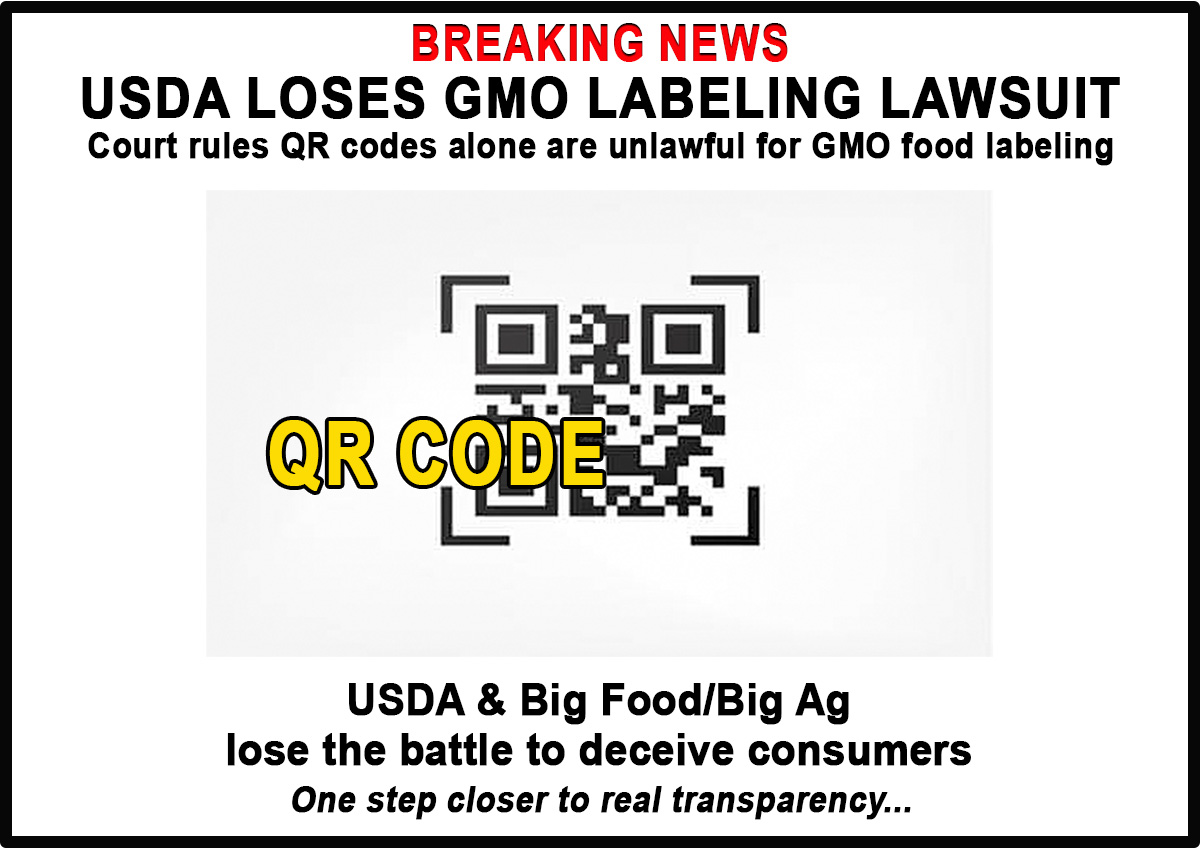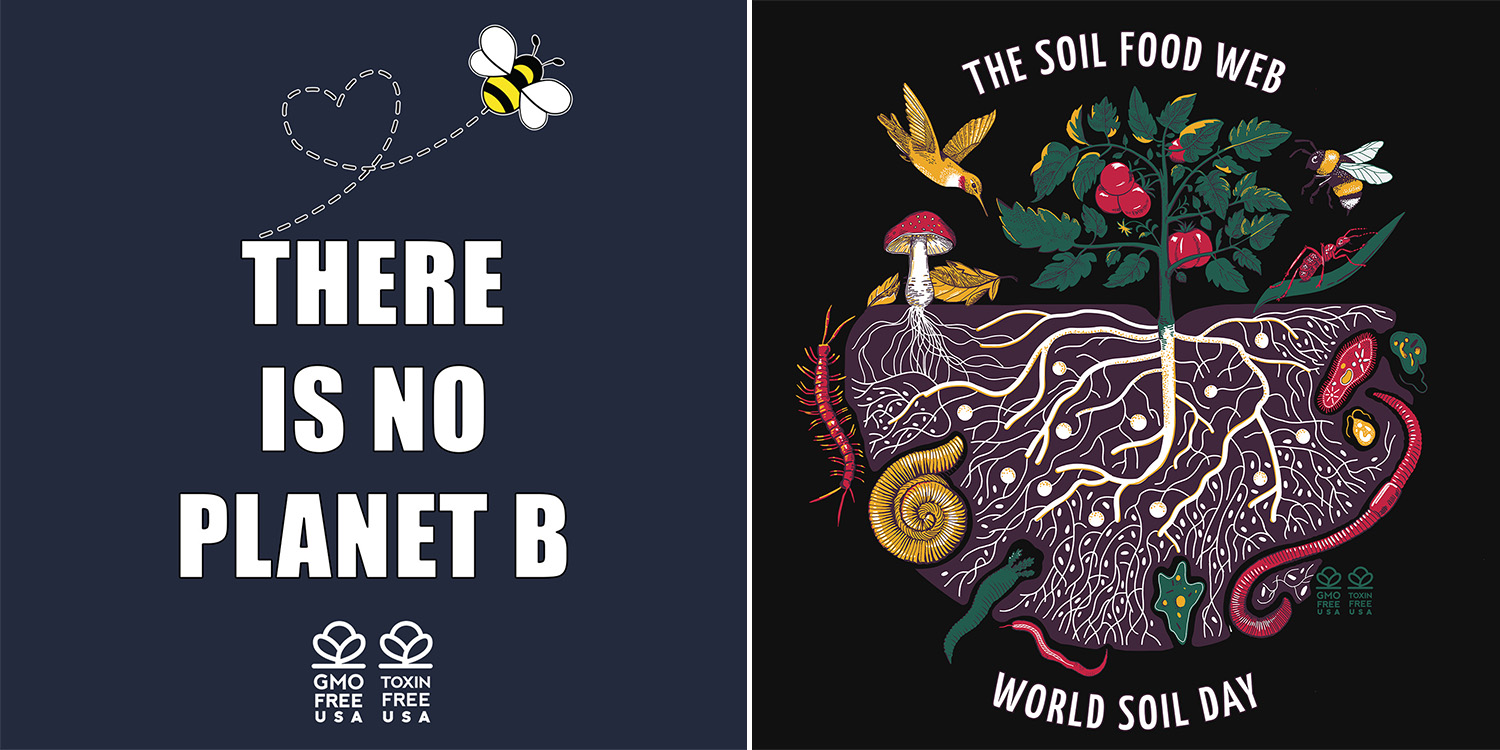| |  | September 24, 2022 In this week's newsletter, we have some good news on GMO labeling. And as always, we cover some of the published, peer-reviewed science that you should be aware of. Neonicotinoids, bees and strawberries, ring-necked pheasants, and pasture-based cows... all in the news this week! |
| |  | USDA Loses GMO Labeling Lawsuit A U.S. District Court has held that the U.S. Department of Agriculture (USDA)'s decision to allow genetically engineered (GMO) foods to only be labeled with a "QR" code was unlawful, and that USDA must instead add additional disclosure options to those foods under USDA's National Bioengineered Food Disclosure Standard. The Court sent back to the agency the QR code portions of the 2018 Trump administration rules for GMO labeling that went into effect on January 1, 2022, which hindered consumer access with burdensome electronic or digital disclosures.
"We are very gratified that the District Court has acknowledged the flawed nature of the National Bioengineered Food Disclosure Standard and has removed at least one of the very egregious aspects of it from the labeling standard," said Mark Squire, co-owner and manager of Good Earth Natural Foods. "We will continue to fight for complete honesty and transparency in food labeling."
"I am delighted with the court's decision today," said Pamm Larry, organizing director of Label GMOs (and also on GMO/Toxin Free USA’s board of directors). "The decision is a victory for the consumer's right to know what they are buying and putting in their children's mouths. Let us hope that USDA goes back to the table and delivers a regulation that protects our rights and requires that food manufactures tell the truth about what's in our food."
This court ruling sticks it to the USDA, Bayer-Monsanto, Big Food and Big Ag. And we’re one step closer to real transparency. But there are at least several more very egregious points within the new GMO labeling law that need to be struck from the regulation for us to have true GMO labeling. |
| | | What do these two men have in common? We know you probably know the guy on the left. But who's that next to Bill? We think you ought to know. He's the guy that's forced GMO apples (that no one wants) into our food system. He's forced GMO salmon (that no one wants) into our food system. And now, he's trying to force GMO mosquitoes into our environment. He's doing it by corrupting our regulatory agencies. Watch to get the scoop... |
| |
|
| | Strawberries were smaller when bees ingested pesticides Study: Research from Lund University in Sweden, published in PLOS ONE, found that solitary bees that ingested the neonicotinoid insecticide, clothianidin, when foraging from canola flowers became slower. In addition, the strawberries pollinated by these bees were smaller. Strawberries are known to become bigger if bees have visited their flowers, but how strawberry growth is affected if the bees have been exposed to neonicotinoid insecticides has so far been unclear. The research team made the two discoveries in their new study. "Our study indicates that the substance made the bees slower and impaired their ability to pollinate the strawberry flowers”, says Lina Herbertsson, biology researcher at Lund University. |
| |
|
| | The Effect of Neonicotinoid Clothianidin on Ring-Necked Pheasant Survival and Reproduction Study: Ring-necked pheasants are economically important to the state of South Dakota bringing in over one hundred million dollars in revenue each season. The study found that pheasants that were fed high levels of seeds treated with the neonic hatched half the number of chicks as those that did not eat those seeds. The chicks that the infected birds did manage to hatch were also 20% less likely to survive. The pheasant finding is alarming because it "echoes the historical impacts of DDT," said Florida state Rep. Rick Hansen, FL-South St. Paul, who leads House environmental committees. "We know there are devastating impacts of neonicotinoids on the environment and wildlife. But there has been a willful ignorance to ignore this. At some point policy makers need to take action," Rep. Hansen said. |
| |
|
| | Family Farms Can Reduce CO2 Emissions By Giving Cows More Pasture Time Study: Organic, pasture-based grazing systems produce more climate benefits than other systems. The pasture benefit on GHG (greenhouse gas) emissions is explained by two factors, says lead researcher Horacio Aguirre-Villegas. First, pasture systems have a more developed root system than other crops fed to cows. “So, with pasture, you are leaving the majority of the biomass (and thus carbon) on the soil, versus corn, where you are taking most of the biomass out of the farm.” Part of this biomass in the roots is carbon, and part of this carbon will be stored in the long term (more than 100 years), based on different factors. The second benefit from pasture systems is that the feed is produced where cows eat. “So, there is no need for transportation, storage, harvesting, etc., meaning less use of inputs and thus, related GHG emissions.” |
| |
|
| |
|
| | |  | | More national pesticide bans, despite industry pushback In early June, PAN global network released the latest update of its list of pesticide bans—and the news is encouraging (if you don't live in the USA). The list documents 73 dangerous pesticides newly banned by national governments around the world. Boy do we have a long way to go. When 21 is not a lucky number... P.S. for our Canadian friends, you're in slightly better shape, but not much. Canada has banned 32 highly hazardous pesticides. |
| |
|
| |
|
| FDA says 59% of U.S. foods tested contain pesticide residues FDA released its report on 2020 pesticide testing. It's not good news. 76.7% of fruits, 54.5% of veggies, and 52.6% of grains contain pesticide residues. And it looks like they didn't bother to test for 2 widely used pesticides: dicamba, a carcinogen, and paraquat, linked to Parkinson's Disease. More cause for concern is the fact that federal pesticide standards - the levels deemed "safe" by our government - are often driven by politics and the profits of chemical corporations. |
| |
|
| | |  | We’ve been asked these questions over and over. What do we buy? Where do we shop? We’ve assembled a list of vetted stores where you can buy healthy, environmentally sustainable, and certified organic foods and products. When you shop with our affiliate links, we get a small percentage of sales, helping GMO/Toxin Free USA’s nonprofit work fighting unethical corporations and educating the public. Click to check out our affiliates here. |
| | |
|
| Subscribe to our newsletter |
|
|
| GMO/Toxin Free USA
PO Box 458, | Unionville, Connecticut 06085
(347) 921-1466 | info@gmofreeusa.org |
| |
|
| |
|
|